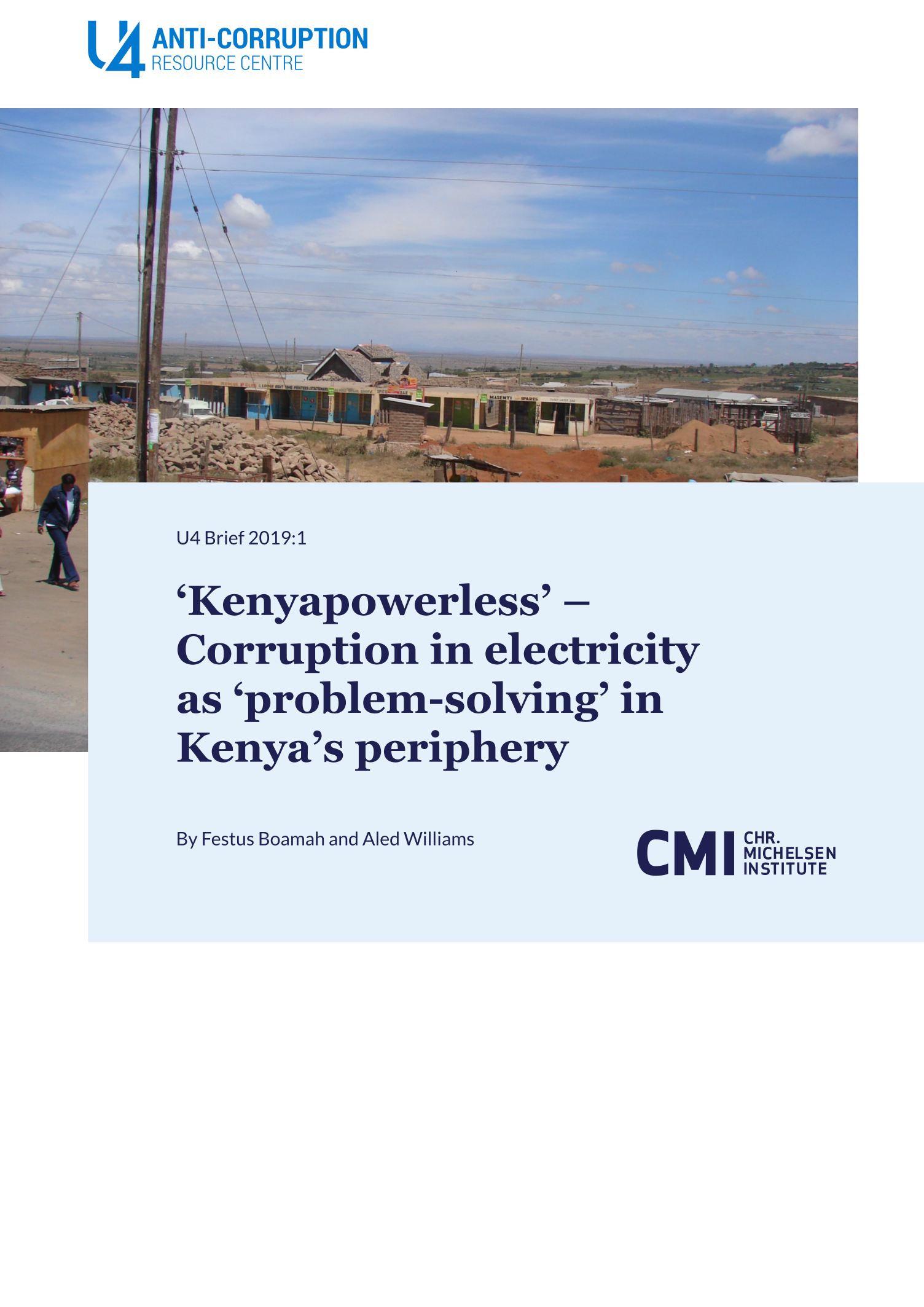Main points
- Rising demand for electricity in the Kenyan periphery has created opportunities for corruption.
- Ambitious grid connection targets have given rise to ‘tenderpreneurship.’
- Confusing electrification schemes have led to households bribing public officials and officials and private actors extracting bribes from residents.
- The high price of decentralised solar PV systems in Kenya has resulted in illicit use of unlicensed technicians.
- Educating the public about grid connection modalities, removing bureaucratic bottlenecks, and speeding up grid application processes, could have discouraged corruption in Kenya’s electricity market.


